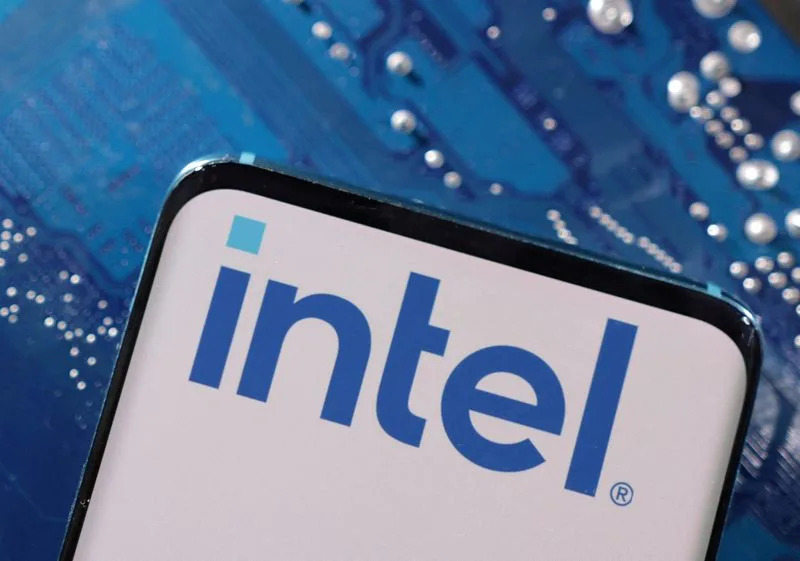
Illustration shows Intel logo
(Reuters) -Intel said its sales would take a hit on Wednesday after the U.S. revoked some of the chipmaker's export licenses for China, in a move Beijing complained was going too far in the name of national security.
Intel did not disclose the name of the Chinese customer in its filing with the Securities and Exchange Commission, but Reuters had reported on Tuesday the U.S. has revoked licenses that allowed companies, including Intel and Qualcomm, to ship chips used for laptops and handsets to sanctioned Chinese telecoms equipment maker Huawei Technologies.
The release of Huawei's first AI-enabled laptop in April, the MateBook X Pro powered by Intel's new Core Ultra 9 processor, drew fire from Republican lawmakers, who said it suggests that the Commerce Department had given the green light to Intel to sell the chip to Huawei.
Intel's shares fell 2.6% after it said it expects revenue for the second quarter to remain in the range of $12.5 billion to $13.5 billion, but below the midpoint.
Qualcomm also said on Wednesday that one of its export licenses for Huawei had been revoked; its shares were flat.
The Chinese foreign ministry, which has criticized every effort by the U.S. to crackdown on tech exports to China, said in a statement they opposed the move and that the U.S. was "over-stretching the concept of national security and abusing export controls to suppress Chinese companies without justification."
The United States placed Huawei on a trade restriction list in 2019 amid fears it could spy on Americans, part of a broader effort to handicap China's ability to bolster its military. Being added to the list means the company's suppliers have to seek a special, difficult-to-obtain license before shipping.
The new restrictions on Huawei are President Joe Biden's latest effort to deny China access to America’s most sensitive and sophisticated “crown jewel” technology in a bid to thwart Beijing.
Biden has used export bans, diplomacy with likeminded democracies and other means to thwart China’s swift technological advances in areas from quantum computing to robotics, and even explained the strategy to Chinese leader Xi Jinping as a new normal in an era of competition between two nations with two different political systems.

Intel, Qualcomm say exports to China blocked as Beijing objects
Intel did not disclose the name of the Chinese customer in its filing with the Securities and Exchange Commission, but Reuters had reported on Tuesday the U.S. has revoked licenses that allowed companies, including Intel and Qualcomm, to ship chips used for laptops and handsets to sanctioned...

